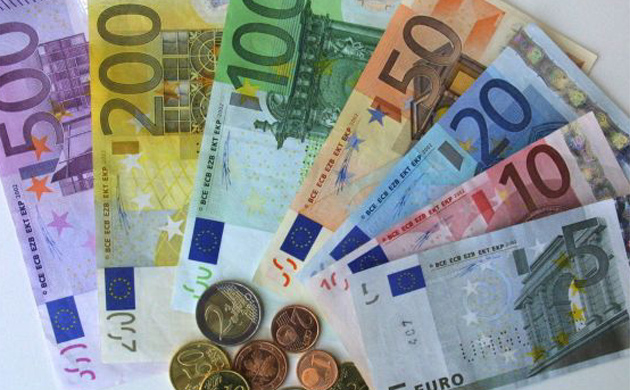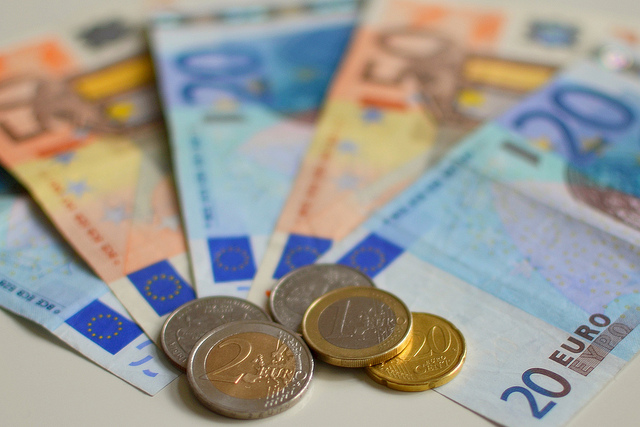Discussions on the CAP regulations post-2013 and negotiations on a new multi-annual financial framework (MFF) for the period 2114-2020 are inextricably linked. As EU politicians and civil servants take to the beaches for their summer vacation this month, it is timely to review how far the negotiations on the MFF package have come and how close/far we are to/from an agreement. The official view (see the Council MFF website) is that we are on course to reach political agreement on the MFF package by the end of this year. This would allow legislative work to be finalised in sufficient time for the new MFF, new rules on own resources and new spending programmes to apply from 1 January 2014, but this may be more wishful thinking than a real forecast.… Read the rest
Gunfight for CAP Budget Money
It has been clear for some time that most of the key issues of the CAP reform will be negotiated upon in the framework of the negotiations on the Multiannual Financial Framework (MFF) by foreign ministers and heads of state of the EU Member States. The Danish Presidency prepared a special document – a Negotiating Box, which should define all the negotiating issues and facilitate the conclusion of negotiations. The negotiations have thus started to heat up, negotiators have presented their arguments and formed the clubs of like-minded countries. Before the negotiations culminate, expectedly at the turn of 2013, we shall try to define the positions of individual actors on the key issues and speculate on the possible outcome of negotiations on the basis of the available sources (Agra Europe, Agra Focus, internal positions of Member States).… Read the rest
Macroeconomic conditionality and rural development funding
The European Commission has proposed to extend the principle of macroeconomic conditionality which currently exists for the Cohesion Fund to all the ‘CSF’ funds in the next MFF period. The CSF funds are those covered by the Common Strategic Framework and include the EAFRD rural development fund as well as the regional, social, cohesion and fisheries funds. The basic idea is that commitments agreed for a member state under its Partnership Contract could be suspended if a member state is not compliant with its macroeconomic guidelines. As the Commission explains:
… Read the restThe draft Regulation seeks to establish a much closer linkage between EU cohesion policy and economic governance, on the grounds that sound economic policies are essential to ensure that CSF Funds are spent effectively.
Where stand the MFF negotiations on the CAP?
This post reviews the state of play regarding the MFF (multi-annual financial framework) negotiations in relation to the CAP budget and review of the CAP regulations post-2013.
The MFF negotiations take place in the General Affairs Council (GAC) attended by member states’ European Ministers or Secretaries of State on the basis of a ‘negotiating box’ paper drawn up by the Danish Presidency. This paper outlines the main elements and options for the MFF negotiations. It is updated as the negotiations move forward, and forms the basis for an agreement of the European Council. Once an agreement is reached, its content feeds into the legislative work on the different acts.… Read the rest
EU budget review cautious on future spending priorities
The Commission has published its long-delayed budget review which follows a public consultation on the EU budget which began as a mid-term budget review in 2008-09. An earlier version leaked last year, and apparently drafted by Commission President Barroso’s advisers (see Jack Thurston’s post on this), recommended specific targets for the reallocation of EU spending, including a reduction in agricultural spending to around one-third of the budget.
The review published today is a more anodyne document, and it shies away from making specific recommendations on which expenditure areas might see their budgets cut. In this it closely resembles the leaked document on CAP reform put into the public domain earlier this month and which also summarises the conclusions of a public consultation.… Read the rest
Budget rumbles in Brussels
The summer break has come and gone and with the European Parliament back in session, Commissioners back from their yachts and their fonctionnaires back at their desks, the future of the EU budget is back in the spotlight.
 As part of the December 2005 heads of government agreement on the 2007-2013 financial perspective it was agreed that there would be a midterm ‘budget review’ in 2008-09 which would look at all areas of the EU budget. including the two hottest political potatoes – the large share of funds going to the CAP and the British budget rebate. The review began with a big public consultation led by the then Budget Commissioner Dalia Grybauskaite, who pulled no punches in describing the budget as largely out of tune with Europe’s current and future challenges.… Read the rest
As part of the December 2005 heads of government agreement on the 2007-2013 financial perspective it was agreed that there would be a midterm ‘budget review’ in 2008-09 which would look at all areas of the EU budget. including the two hottest political potatoes – the large share of funds going to the CAP and the British budget rebate. The review began with a big public consultation led by the then Budget Commissioner Dalia Grybauskaite, who pulled no punches in describing the budget as largely out of tune with Europe’s current and future challenges.… Read the rest
Which member states pay for wasteful farm income support?
So, is examination of member states’ financial net contributions a shameful exercise: hiking up national egoism and ignoring the larger benefits of European integration? Not at all. If CAP funds were spent exclusively on European public goods, such as climate change mitigation or the protection of endangered species, national bottom lines would indeed not matter. The money should be allocated wherever greenhouse gas reductions can be achieved most cheaply or where the need for wildlife protection is the greatest.
But as things stand, CAP subsidies are mostly free handouts to member states and their farming communities – they do not create commensurate value for European citizens.… Read the rest
How much is enough?
The CAP has to respond to new challenges, and thus it needs more funding. At the very least, and more realistically, the current budget must be preserved. That is a common line of reasoning. It is also a surprisingly simple rule-of-thumb considering the eye-watering annual budget of EUR 55 billion. … Read the rest
Does the CAP fit?
The biggest driver for further reform of the CAP is budgetary. At a time when most governments are struggling with vast budget deficits, public expenditure is under pressure as never before. Policy-makers are looking for ways to trim budgets, to get better value for public money and to ensure that budgets are aligned with their most pressing policy priorities. Several years ago the commission initiated a ‘fundamental’ review of the EU budget and it is expected that this will set the scene for the debate over the EU’s finances from 2014 onwards. The views of member states are critical, as they hold the EU’s purse strings.… Read the rest
Le Monde debates the CAP
Last Friday, Le Monde, the leading French daily newspaper, devoted a double-page spread on its comment pages to the common agricultural policy. Along with José Bové, Michiel A. Keyzer and Jean-Christophe Bureau I was invited to contribute an article to the debate. You can read it in French on the Le Monde website. I’ve posted an English version below.

Farming should protect Europe’s environmental resources not use them up
In 2009, farm incomes fell across the whole of the EU, not least in France. Dairy farms have been hardest hit with average prices down twenty per cent. This is despite the EU spending 55 billion euro on the common agricultural policy, one of whose aims is to ensure farmers a fair standard of living.… Read the rest


